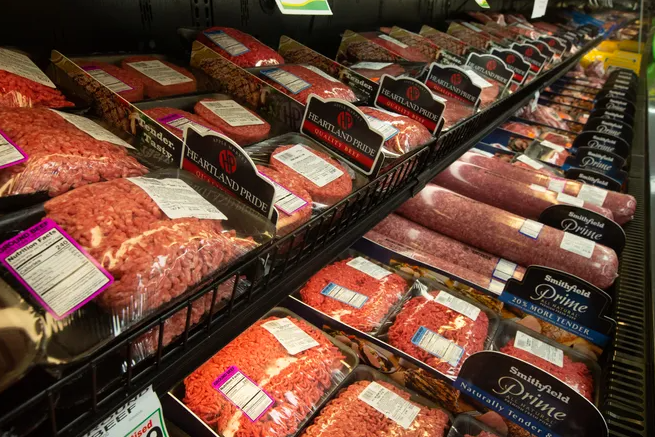Gov. Laura Kelly has signed into law a meat labeling bill pushed by the cattle industry as a way to protect consumers who may be confused by plant-based alternatives.
Kelly approved SB 261 on Thursday after the bill passed unanimously in the House and Senate. The bill signing comes as Kelly is set to proclaim May as beef month.
"I encourage all citizens to support the largest sector of our state's agricultural industry and join in a celebration to promote and celebrate beef in Kansas," Kelly said in the proclamation, which is expected to be officially signed next week at a Manhattan area ranch.
Kansas beef cattle contribute $12.9 billion a year to the state's economy, including $1.7 billion in international exports.
Vegetarian, vegan and meatless among plant-based labels
Starting July 1, producers of plant-based meats must include on their labels a disclaimer that is in a "prominent and conspicuous font size, in close proximity" to traditional meat terms.
Disclaimers can include vegetarian, vegan and meatless, among other words and phrases. Without such disclaimers, the food would be considered misbranded.
"It's a sad day that we have to have labeling on what our products are, that they're not fair with consumers," Sen. Caryn Tyson, R-Parker, said in caucus ahead of the vote. "And one day, I hope it goes far enough to say there's no such thing as almond milk, soy milk."
Restaurant menus don't have to abide by the same requirements.
Kansas Livestock Association led labeling effort
The Kansas Livestock Association led the legislative effort, which was backed by other agricultural groups.
Cattle producers say they aren't seeking to corral their competition.
"We think if you have a product, and you can sell it, go ahead," livestock association lobbyist Aaron Popelka previously testified. "Let's get in the market and compete."
But the meat alternative competition, including Impossible Foods and Beyond Meat, have what Popelka contends are "deceptive" product labels that are "trying to sell it at the expense and confusion of consumers."
The debate pitted the influential agriculture lobby against the state chamber of commerce.














